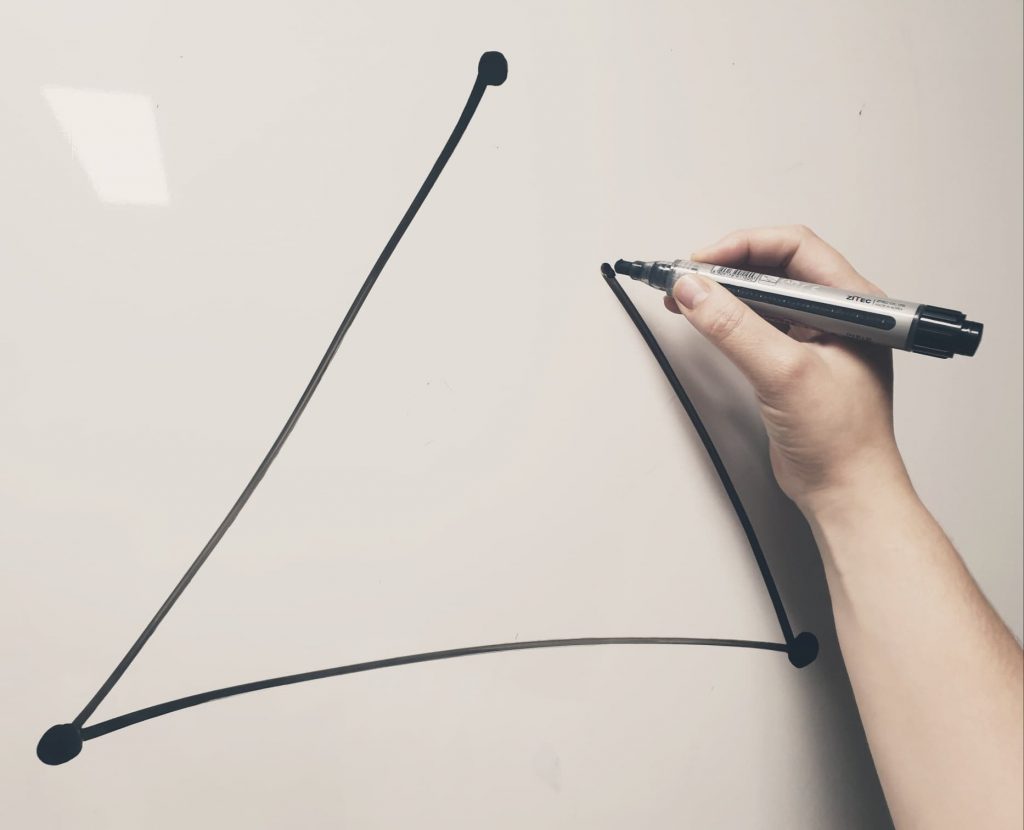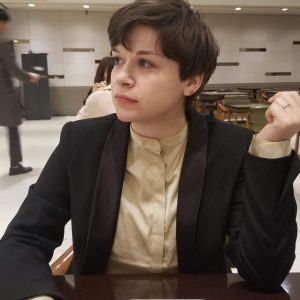My Journey in Personal Pedagogy: The Triangle Approach
It is said that the triangle is the strongest shape; able to hold its form while under extreme pressure and therefore able to support a seemingly disproportionate amount of weight. In accordance with this I have a three-pronged approach to my teaching pedagogy. During my time in the New School MATESOL program student needs took a rightful front seat in my studies. Student needs quickly became my first consideration in my pedagogical triangle. I remember studying how to assess students’ strengths and weaknesses and how to center students’ individual learning goals in lessons. My New School courses also put a lot of emphasis on self-reflection and the identification of personal pedagogical beliefs that are effective and founded in modern and proven methodologies.

I assumed that this framing of the students’ needs was meant to fit into an idea that students would be learning English in order to practically communicate with L1 English speakers. This was shortsighted to say the least. Further study did a good job of broadening my understanding of how varied students’ goals for language learning can be. I’m speaking of course about English language learners who are studying in order to communicate with other L2 English speakers. Then there are all the ESP students who have very, well, specific learning goals and don’t necessarily want or need a comprehensive course of study with complete fluency as the end goal of their learning, and so on. Then there are other considerations beyond those of the students themselves.
More often than not schools themselves base their considerations on the long-term needs of the students. They have easily understandable, socially agreed upon goals that frame curriculum development which is based (hopefully) on the learning goals of the majority. These goals may not be true for all students, but they are usually (hopefully) pretty well informed. That means the second part of my teaching triangle prioritizes the long-term goals of the curriculum, which is built on the even more far-reaching necessities of the school or program administration. As I progressed through the Master’s program and my teaching experience broadened it became more and more apparent that my belief in the teacher as a hired guide to independent “explorer” students was flawed. It has become clear that for me, a teacher who has worked within government-funded language learning programs for recent immigrants in the United States as well as within the public school system in South Korea, that it is impossible to prioritize only students’ personal goals in syllabus building and lesson planning. There are just so many other things to consider, and school curricula and group goals are not the least of which.
The third point of my pedagogical triangle is to balance the other two points with my own teaching beliefs and practices. I went through the first year of my Master’s stubbornly clinging to the idea that, not only are individual student needs the end all and be all of what should dictate my teaching methods and materials (school mandated curriculum doesn’t at all take into account students’ individual goals, after all), but also that a teacher’s own pedagogy would limit possibilities for student learning and was therefore somehow selfish. I didn’t see the incongruence of holding that belief in the first place, misplaced though it might be, but I digress. I thought teachers should be entirely flexible, have no preferred techniques or ideals concerning class culture. It turned out that the entirety of my teacher training, ongoing that it is, is meant to develop a pedagogy developed by an ongoing education in new and varied teaching techniques that can be adapted to the different goals of all involved. Pedagogy involves not just evolving techniques, but also philosophies, methods, and theories. In my view, a successful pedagogy requires meaningful classroom interactions as well as respect between educators and learners. This, by default, is based on the teacher’s personal social standards, which for me depends on a commitment to a positive and open communicative culture.I find this especially true for the language learning classroom.
As I previously mentioned, my success or failures as a teacher depends on the balance of these three considerations. For example, I might see that some individual student needs may be for immediate useful language in their communities, while the school curriculum may be more focused on preparing them for the more far-reaching goal of passing a citizenship test. The administration may be desirous of an academic language curriculum, but students may be in need of naturalistic communicative language skills. It is pedagogy that balances those two, sometimes differing needs. Likewise, curriculum goals balance my own personal objectives, and the often greatly differing individual needs of students. Students’ personal goals do the same. My hope is that the balance of all three creates classrooms that are effective and comfortable for everyone involved.

Author’s Biography: Lucinda Estrada is a middle school teacher at a middle school in Seoul, South Korea. She moved from Washington State in 2016 where she graduated from Evergreen College with a Bachelor’s degree focusing on multicultural language education. While there she worked as an ESL teacher for a non-profit school for recent immigrants. She has been living and working in Korea for four years.